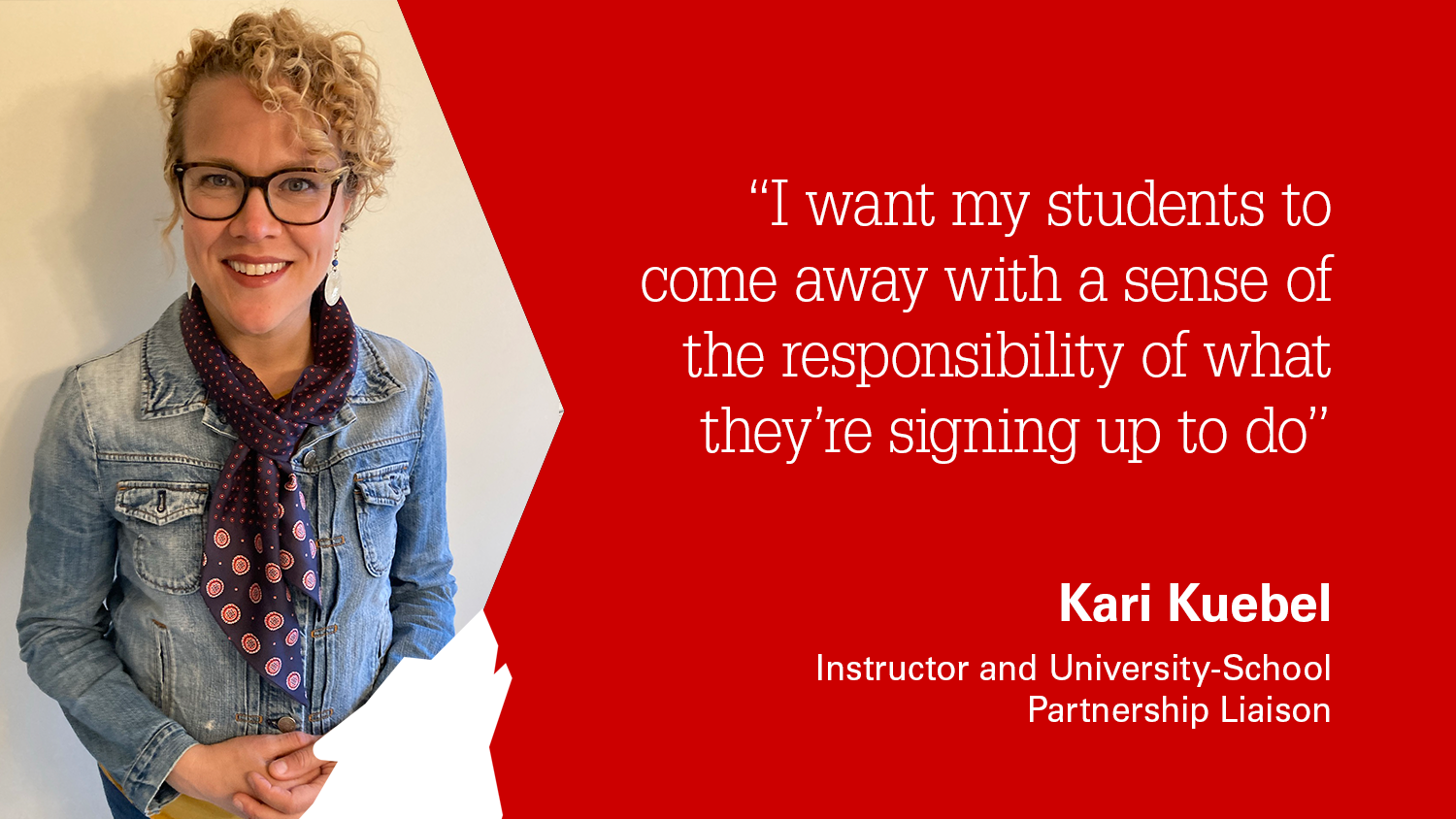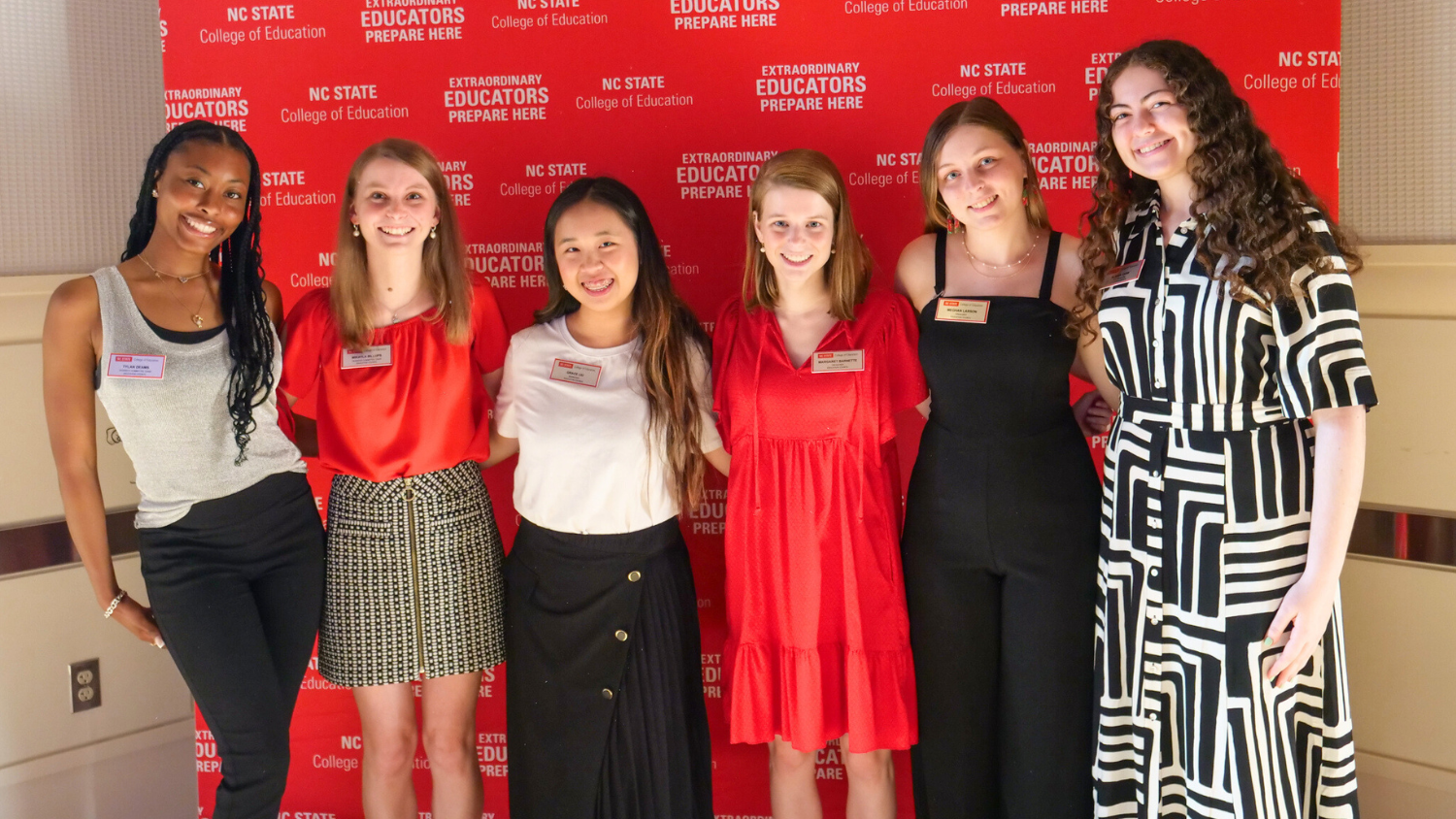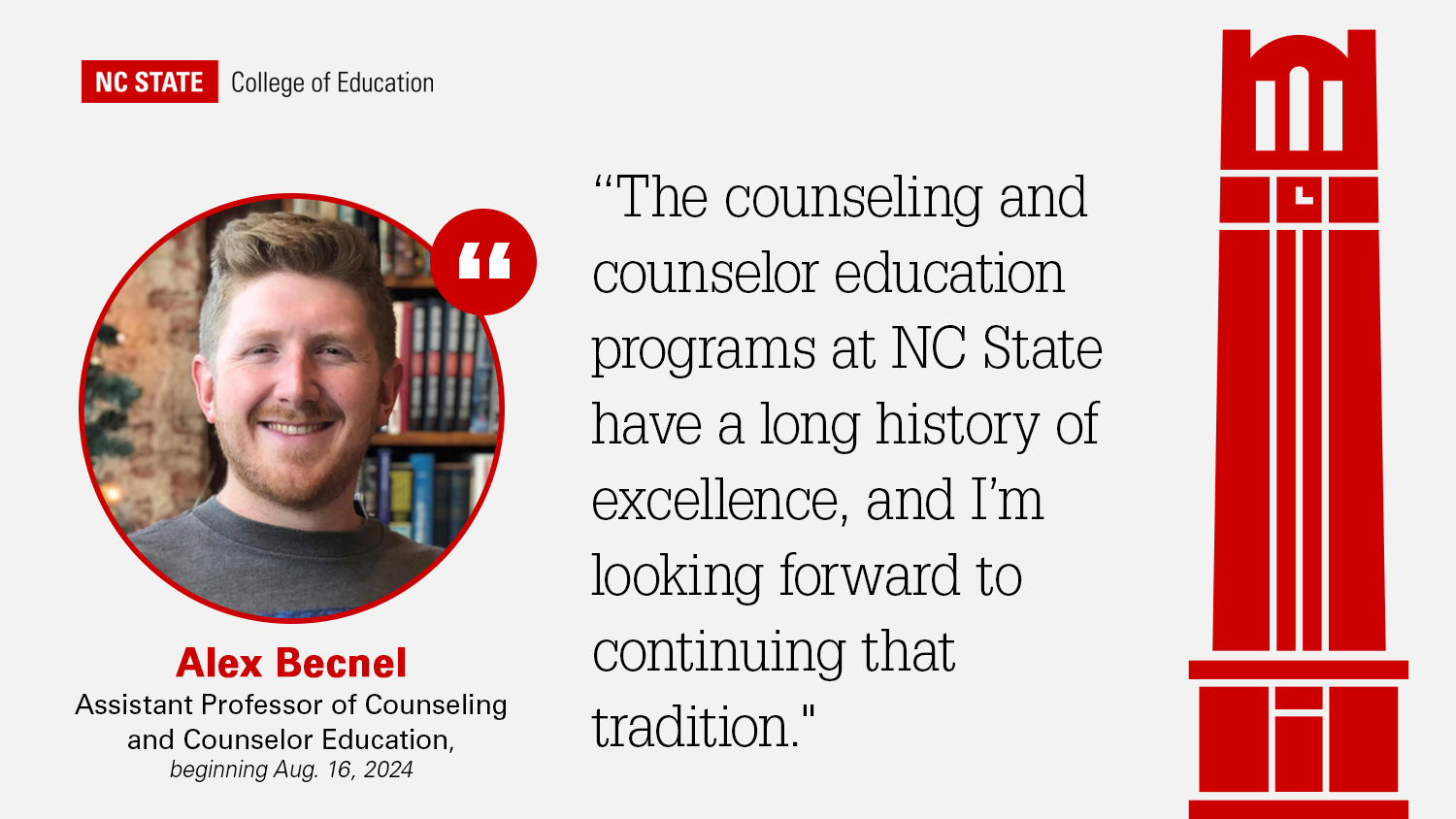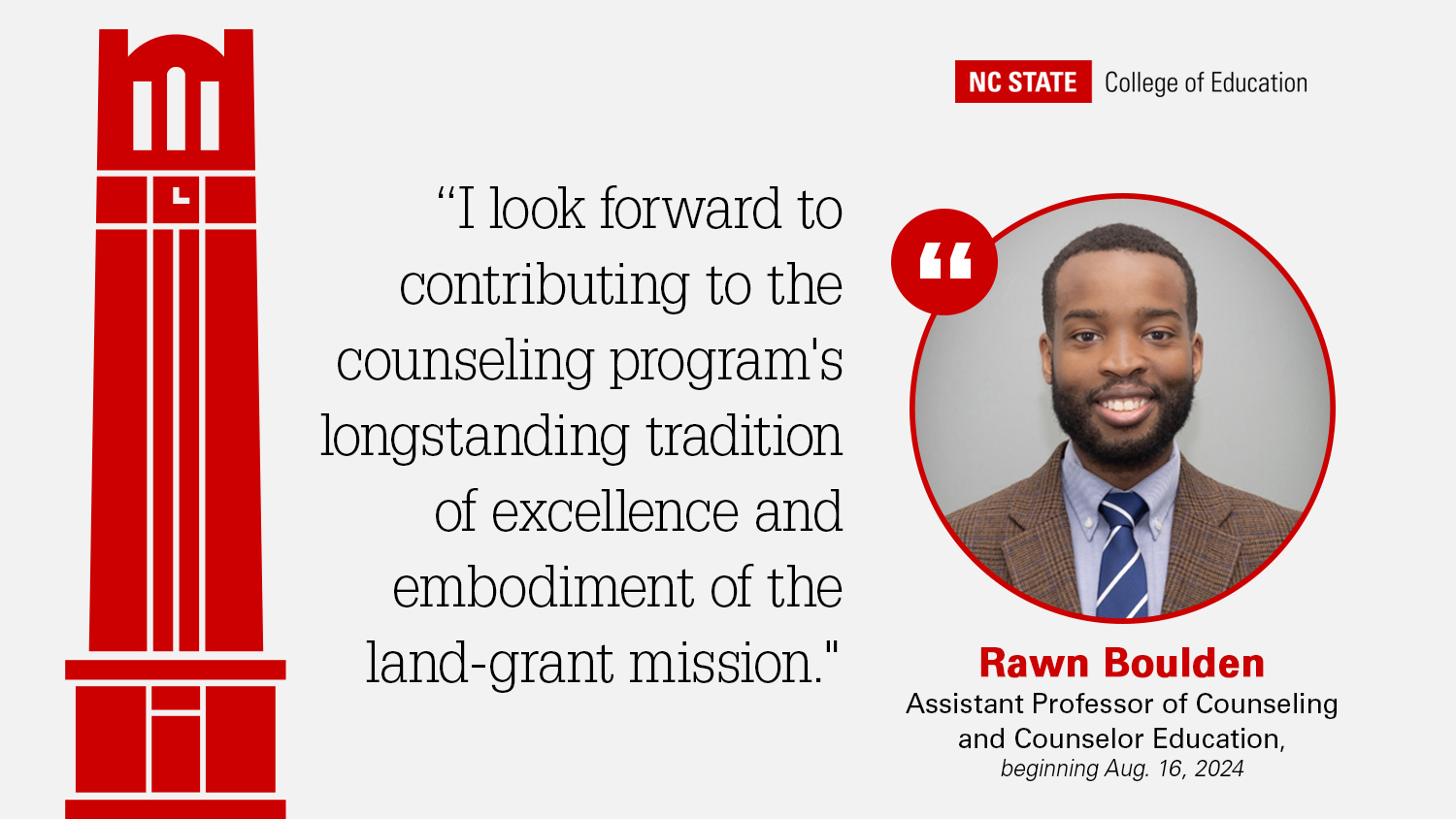Students on Instructor and University-School Partnership Liaison Kari Kuebel: ‘She Made Me So Much More Motivated to Become an Educator’

Morgan Harris ‘22 thought early on that she wanted to be a teacher but when she got to the NC State College of Education, she started to see how many other career possibilities were open to her.
During her sophomore year, when she took a course with Instructor and University-School Partnership Liaison Kari Kuebel, her motivation to become an elementary school teacher was reignited.
“She was the instructor for my first major-specific class, so having her as the first frontrunner for my major was awesome. Her class really reaffirmed me of why I wanted to teach,” Harris said. “She made me so much more motivated to become an educator and her class gave me so much experience.”
Kuebel is an instructor for ELM 370: Classroom Management Seminar and ELM 250: Introduction to Elementary Education in a Global Society, as well as a supervisor for undergraduate students in the elementary education program who engage in field experiences from their sophomore through senior years.
A former elementary school teacher herself, Kuebel always knew that she wanted to be an educator, but came into the supervision role accidentally. As a graduate assistant for the College of Education’s then-new elementary education program, she took on the role of mentoring and coaching undergraduate students in the field when the department was shorthanded. She initially intended to use skills developed through this experience to serve as a beginning teacher coordinator at her elementary school, but ended up falling in love with the supervisory role instead.
“This profession has so much burnout and I felt like I could help people who wanted to do this job stay in the profession in my roleas a supervisor,” Kuebel said. “Supervising in partner schools keeps me connected to what teachers are needing and doing, especially during virtual learning where teachers and my student teachers are still rising to the occasion and doing their best.”
The transition to online learning during the coronavirus pandemic, she said, has been an interesting experience both for her students and herself.
In the fall 2020 semester, for the first time in her career, she taught an entire class of students whom she had never previously met face-to-face. She realized that she and her student teachers, as well as K-5 teachers in partner schools, were all in the same boat, learning new tools and technologies and finding new ways to engage together.
“It forced us, whether we wanted to or not, to learn some things that are good to have in our back pockets for the future. It really made people dig deep for their own resilience and I’m proud to be a teacher as I watch teachers rise to the occasion and build relationships through the screen,” she said.
In her work as both an elementary school teacher and College of Education instructor, Kuebel said she always starts from a place of community building; learning the strengths and weaknesses of her students and creating a classroom culture where they feel safeenough to ask for help when they need it.
“I am so fortunate that I have been able to experience the amazing classroom community she creates for her students. She always makes sure that her students are doing okay and wants the best for them as teachers and individuals,” said Abby Edwards ‘22. “She knows how to engage her students with what she is teaching and encourages them to use their voice in educational matters. She has had a major impact on my life and I hope to be half as encouraging, selfless and caring as Mrs. Kuebel is to those around her.”
Kuebel frequently reminds her students that she wants them to engage in the same community building behaviors she exhibits in her courses when they enter their own classrooms. She also wants them to remember that each class they teach will be made up of different children with unique needs.
“I hope my students come away with an understanding of the realistic sense of the human factor of the profession. You’re going to get 16 to 30 kids every year and they’re going to need different things and have different skills and weaknesses. How you honor them as humans is going to make all the difference in the world,” she said. “I want my students to come away with a sense of the responsibility of what they’re signing up to do.”
In addition to Kuebel drawing on her own classroom experiences to help students understand the reality of teaching, she has also enlisted current elementary school teachers to engage with her classes.
Harris said that one of her favorite experiences was when Kuebel invited a panel of Wake County Public School System teachers to talk with students about the profession. This, she said, gave her an opportunity to ask personal questions, get advice and hear different perspectives about the challenges of teaching, which helped to ease her anxiety about eventually entering a classroom full time.
“They were giving us all this advice and I just thought, ‘OK, I can do this. I’m ready,’ even though I was only a sophomore in college,” she said.
- Categories:


